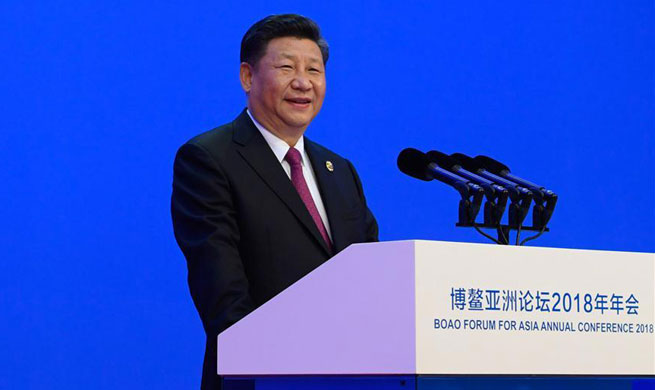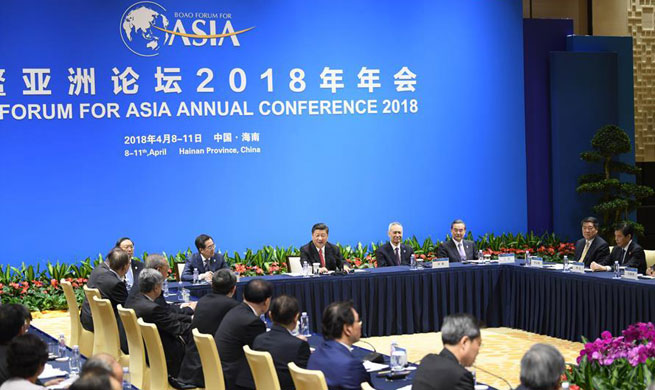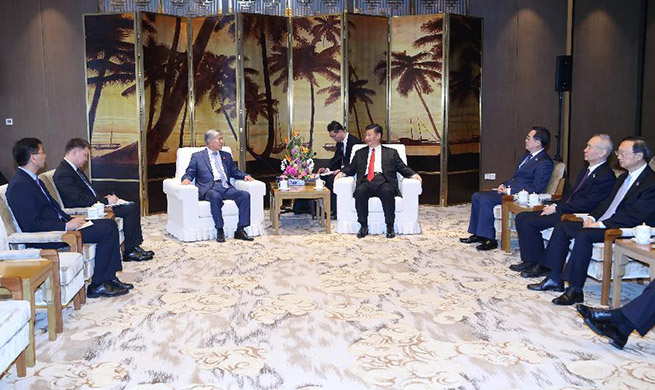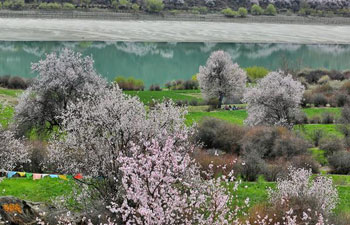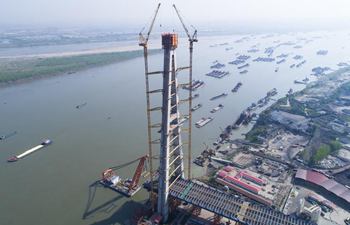ANKARA, April 11 (Xinhua) -- Turkey has seized 80 suspected coup plotters in overseas operations who were involved in the coup attempt in 2016, Turkish government source said on Wednesday.
The Deputy Prime Minister Bekir Bozdag implied that actions were taken by Turkish intelligence operatives abroad of the national intelligence agency.
On Tuesday, in the latest of these operations, Erdogan announced in parliament that three sought-after suspects were brought to Turkey from the Central African country of Gabon "after a successful operation," with the help of authorities in this country.
"We will get them whatever the cost and bring them back to Turkey where they will be judged," he added.
Speaking in a Turkish television interview last week, Bozdag, who is also the government spokesman, did not give details of how such arrests had been carried out.
There have been also unconfirmed reports in the Turkish press of arrests in Afghanistan, Pakistan and Sudan.
Presidential spokesman Ibrahim Kalin said later that the arrests and extraditions are going on in accordance with law and that more operations are supposed to follow, without saying which countries are concerned.
The Turkish officials said all of those arrested had been linked to Fethullah Gulen, the Turkish cleric who lives in the United States.
A former ally of Erdogan and now one of the president's biggest critics, Gulen has been accused by the Turkish government of orchestrating the coup attempt on July 15, 2016. Gulen and his organization have denied any role.
Erdogan has repeatedly pressed the United States to extradite Gulen, calling him "a terrorist". Ankara also refers to his organization by the acronym FETO, which stands for "Fethullah Terror Group."
Bozdag told the Haberturk TV channel that Turkish intelligence agents had "bundled up and brought back 80 FETO members in 18 countries."
However, local experts said Turkey should be careful in conducting foreign operations which could have risks.
"These operations even if they are deemed necessary by the state apparatus, are always risky because you operate in a foreign territory, friend or foe," said a retired ambassador on condition of anonymity.
"No country wants foreign agents roaming around on their land and less so to have information about them organizing abduction operations. There are diplomatic rules and international norms to follow," he added.
Turkey has reportedly identified some 4,600 suspected members of the Gulen network around the world where it has established schools and charity organizations in the past decade.
Ankara complains of lack of cooperation from EU countries and the United States to fight against this network of mainly schools and companies.
Some of Turkey's allies have shut down Gulen schools and extradited wanted suspects. However, its NATO ally the United States has refused to extradite Gulen despite repeated requests, let alone consider evidence send by Turkish officials.
On April 4, an Ankara court asked the justice ministry to file extradition requests for a total of 54 senior members of the group, including Fethullah Gulen, a move considered to be a formality because the countries concerned, the United States and Western countries, are very reluctant to extradite these suspects despite Ankara's efforts.
Last year Wall Street Journal reported that former national adviser Michael Flynn was under investigation by the FBI for his alleged role in discussions with Turkish officials on a plausible abduction of Gulen in return for 15 million U.S. dollars.
Ankara has insisted that Gulen and his supporters were behind the coup attempt, which had support from some in the military. More than 250 civilians were killed and hundreds were wounded in the coup.
Erdogan vowed on April 7 that Turkey will "continue pursuing suspects" of Gulenists, "We will chase them no matter where they escape."










